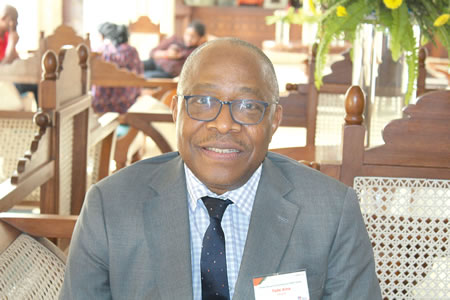
What is Partnership for African Social and Governance Research (PASGR) all about?
PASGR is a not-for-profit organisation located in Nairobi, but working in over 15 African countries on governance research, with the collaborative graduate programme of Masters of Research and Public Policy (MRPP) in 13 universities in seven countries. We also have a programme we call tooling and retooling, which has trained over 1,600 social scientists, researchers and policy actors in the continent in short intensive training courses on research methods and public policy.
PASGR was established in 2011 with the aim of enhancing research excellence in governance and public policy. This was meant to address the problem of quality in Africa and higher education, but it sought to do it directly from a perspective: to promote excellence in social sciences, for public policy. It also melted how to do good research, and those who had not got their PhDs have a problem because a lot of the good teachers had left around that time, so a lot of the students are not trained by the best. So, PASGR offers courses in research methods to bring people up to speed and to re-equip people who did it a long time ago.
What is the relationship between PASGR and PedaL?
PedaL was the child of MRPP, because MRPP uses something called alternative pedagogy. MRPP believes that for students to learn effectively, they must have exceptional and memorable moments. So, it uses an array of different ways of learning and teaching, which include e-cases, role play, role acting, dialogue, group work, which is an assortment of a variety of what we call pedagogical training. It was this approach in teaching and learning that we further distilled later and turned to what we call PedaL- Pedagogical Leadership in Africa. It is a major intervention in the transformation learning and teaching in our universities. I think it will help us to produce better lecturers and students. The fourth industrial revolution is going to be led by young people. So, we are asking the lecturers to move into that level; to begin to know how to use technology, because the young generation is versatile with technology. PedaL helps in creating the next generation of Africans and educating knowledgeable Africans who will be part of the knowledge society and knowledge economy.
Why is the word excellence so emphasised in PASGR?
It has to be because to be competitive as an academic, you must be excellent; you must use global and world standards. I cannot be competitive using my village standard. I must measure myself against others. Excellence is a brand in PASGR. It is an aspiration and a goal. It is what we do. If there is something we’ve not got right, we repeat to find ways of making it right. This has really been well-proven through the testimonies of policy actors we have worked with. They testified that PASGR had taught them how to use research to address public issues and be rigorous about research analysis and how to connect to the media and themselves.
Now, let’s come down to the academic world
We train through the universities, but we train the university lecturers, who train differently. The convening we had in Kenya is an example of how we train university lecturers. If you go to the University of Ibadan, you will find 15 to 25 people running the MRPP class; ditto the University of Jos, Uganda Martyrs University and so forth. What we are trying to do basically is to distill the equivalences of these trainings and then give it to the students; but this is done through the instructors.
Why are PASGR/PedaL activities limited to the African continent?
This is because the main beneficiaries are Africans. PASGR’s focus is on the production and dissemination of policy-relevant research that is geared towards a vibrant African social science community to address the continent’s public policy issues.
How do you engage the population in what you are doing?
We have something we call Utafiti Sera (a Swahili word for research policy community) model. Through this platform, we bring a multitude of stakeholders together to discuss research evidence from fresh undertakings or synthesis of existing research. We have achieved a lot of success in generating appropriate and negotiated policy actions and uptake, for example, underemployment creation in agriculture and agribusiness as well as action for empowerment and accountability in Nigeria; in turning urban cities around in Rwanda; and, in social protection in Kenya. It’s a very interesting thing because PASGR’s researches are not meant to be put in an article and kept on the shelves. PASGR’s research must address a problem and the result we back to the people –the community, the politicians and policy actors. We go back to the communities where we have studied and given the results back to them.
What effort are you making to network other continents apart from Africa?
From 2011 to date, PASGR has had partners from the Institute of Development Studies of the University of Sussex, United Kingdom; Free University of Berlin, The Open University in the UK, the Hubert School in the University of Minnesota, among others. We have several institutions that we have partnered with and contributed to our successes.
Can you share with us the projections of PASGR?
We have trained about 1,600 people, and we expect to train as many as about 3,000 next year. In terms of students, they are still graduating in trickles. I think the largest is from the University of Jos so far, which is one of the three Nigerian universities we are working within Nigeria. We plan to be more friendly, open, and to build on networks. The networks are important to us. More so, we are going to start a Ph.D. programme between September and December this year. We intend to start with a pilot from the University of Nairobi, University of Ibadan and the University of Pretoria.
This has been reposted from https://tribuneonlineng.com/232618/